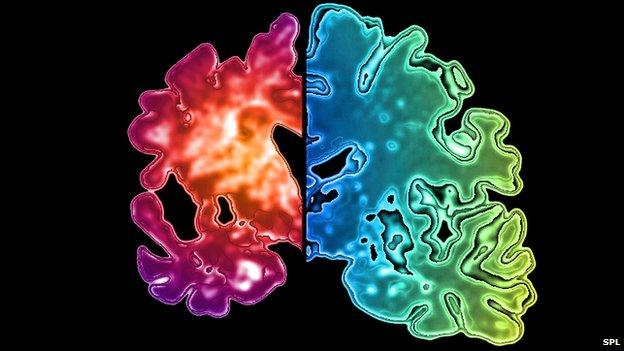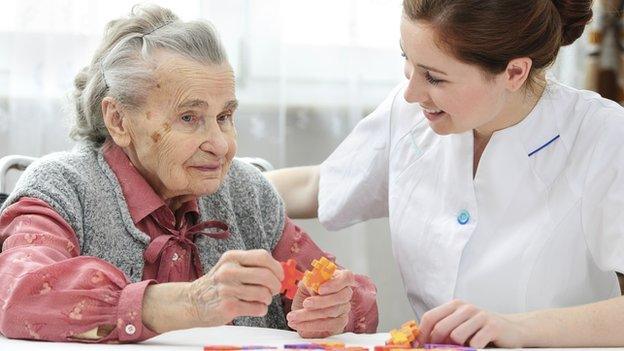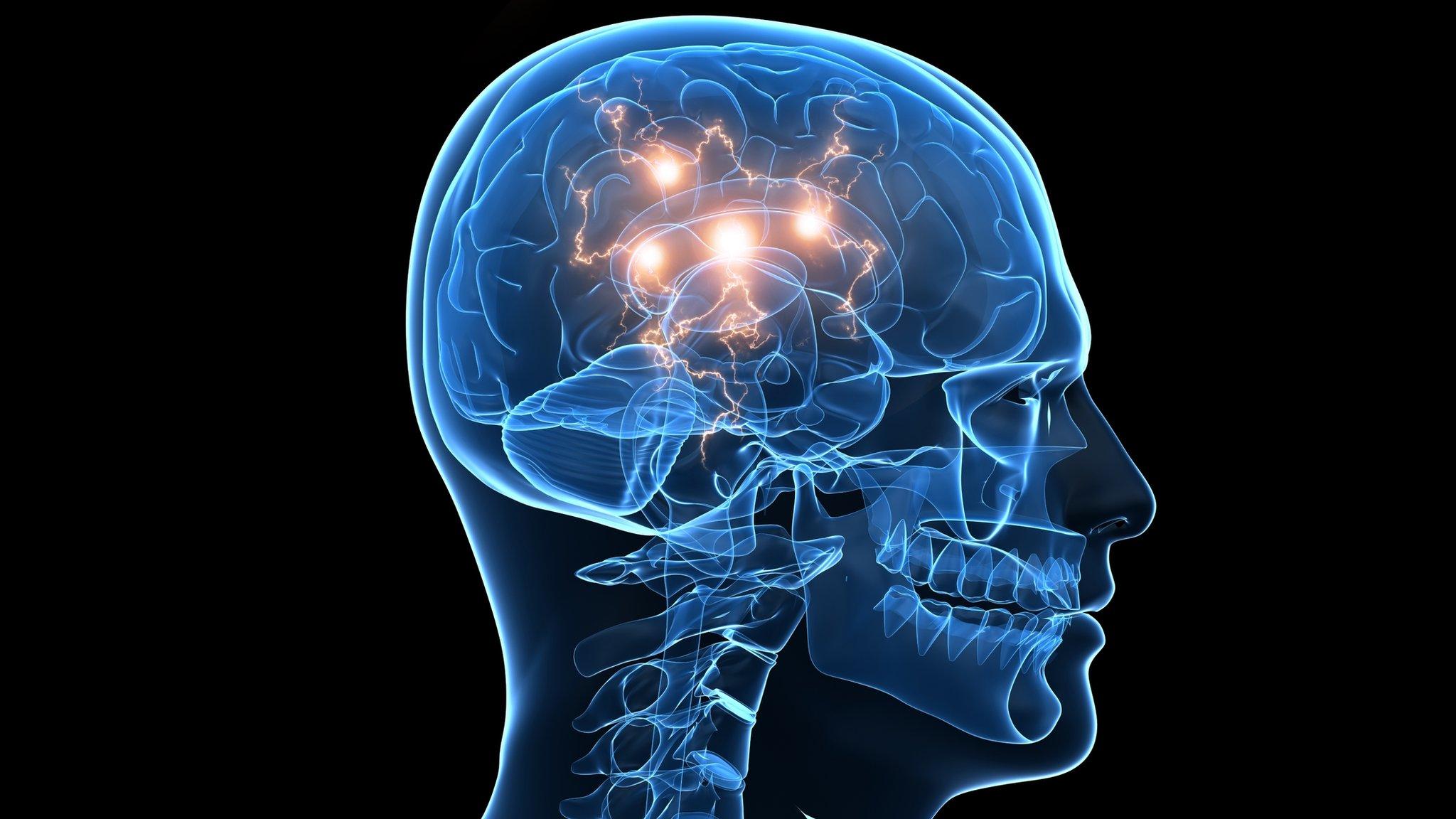Dementia research boosted by surge in volunteers
- Published

The government wants the proportion of dementia-study volunteers to double by 2020
There has been a surge in the number of people volunteering to help with medical research into dementia.
The National Institute for Health Research, the research arm of the NHS, reported a 60% jump in people signing up in the past year.
Almost 22,000 people are taking part in 100 separate studies into the degenerative brain disease.
The Alzheimer's Society said such volunteering was essential for developing a cure.
Chris Roberts, from north Wales, has been taking part in a trial investigating the genetics of Alzheimer's disease.
He said: "After a diagnosis of dementia your whole family also receives the diagnosis. It's a team effort.
"What we then need is hope, and this is what research gives us. Taking part means I'm doing something constructive and worthwhile. I'm leaving something behind that might help others, if not myself.
"Any kind of research, small or large, brings with it hope that there may be a future."
Dr Iracema Leroi, a dementia specialist from the University of Manchester, said: "This is one of the ways in which people can make a very positive impact and fight the disease and fight the condition - and be involved in self-management."
She said the areas of research needed were into better care for people, finding a cure and preventing the disease.
Volunteers both with dementia and without the condition were required for the research, and could sign up easily via the new Join Dementia Research, external service, she said.
Studies include:
Investigating how our DNA affects the risk of getting dementia
Whether antibiotics can be used to keep the brain going
Testing the role of the immune system in developing dementia
How to improve care for patients
Dr Doug Brown, from the Alzheimer's Society, said he was delighted people were taking part. "Not only is it essential for us to make progress towards new treatments and better care, but it could also empower people to learn more about their condition and benefit from additional support."
The government aims to encourage 10% of all people with dementia to take part in clinical trials by 2020. The figure is currently 5.5%.
Life sciences minister George Freeman said: "Volunteers are essential to our battle against the disease and I'm delighted that so many people, with and without dementia, are coming forward to participate in ground-breaking new trials.
"There is still a long way to go, but with their help we hope to find a cure or disease-modifying therapy by 2025. The race is on."
- Published22 July 2015

- Published10 April 2015

- Published21 February 2015

- Published15 April 2015
